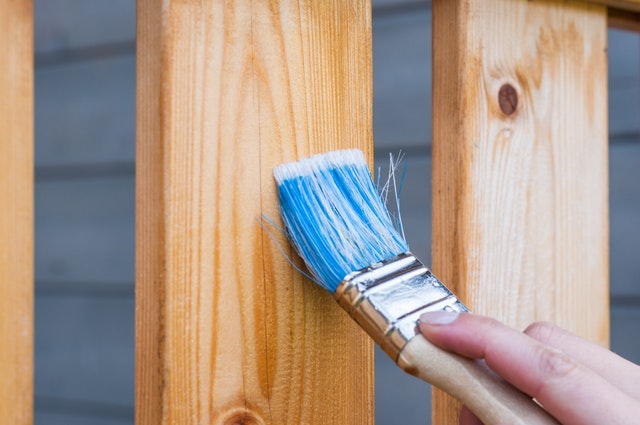Guest post by Paul Williamson
Whether you are planning on renovating your home to increase the market value or simply to make it a more enjoyable place, doing home improvements can be a long and often expensive process. According to the 2020 Renovation Nation Report, homeowners in the UK spent about £4,035.70 on renovations to make their home a more comfortable place to live. However, when you are planning your home renovation, you should be thinking about what it is you really need to renovate as opposed to what you want. This very important decision affects the budget you will be planning for the project.
Since renovation costs depend on the scale of works you want to do, your budget can quickly get out of control without proper planning. To avoid this, it is advised to keep some extra money on the side for any unforeseen mishaps. However, sticking to your primary budget can also achieve the same results if you make smart decisions at the beginning. Also, look for grants for windows and doors from government 2022 since it can help homeowners reduce their energy bills and improve the overall energy efficiency of their homes. These grants can provide financial assistance for upgrading to more efficient windows and doors, making them a cost-effective solution for homeowners. So, if you want to renovate your home without exceeding your budget, here are five budget-friendly tips you can follow to help you throughout the process
1. Make a plan and prioritize
When you decide you want to renovate, it is usually because there is something in your home that doesn’t meet your current needs. Setting out your renovation goals at the beginning is very important in achieving the desired results. The best thing to do is to determine your priorities and focus on those first. This is because big improvements usually determine your overall budget. For example, enlarging your bathroom or fixing the kitchen floor are home improvements that would require a bigger budget and should go on the top of your priority list. Whatever you put at the end of your list can be regarded as the things you simply want to renovate because of aesthetic reasons. However, it is recommended that you think of these last and complete them if your budget allows it. All in all, having a detailed plan of your renovation project helps you stick to your budget and ensures a realistic timeline for completing all the work.

Photo by Picjumbo from Pexels
2. Hire the right people
Another important factor that plays a major role in your home renovation project is the people you plan to hire. For example, hiring a tradesman for plumbing, electrical and structural work is the best option for you to save money to avoid unnecessary accidents. Before you hire anyone, it is advised that you do your research first. You should get at least three quotes per job so you can weigh up the cost and timeframe for each completion. One way is to ask for recommendations from your family and friends. Another way is to search for reputable websites, like Price Your Job, which offer useful and detailed information about what each job entails, how much money will be needed for materials and labor, and the timeline for completing. Either way, it is very helpful because you would want to hire a tradesman you can trust and who will guarantee you that they will do a perfect job renovating.

Photo by Thijs van der Weide from Pexels
3. Use DIY where possible
To save even more money, you can do some easy home renovations yourself. For example, if you think you are handy with a paintbrush, you may not need to hire a professional painter to do the job for you. Instead, you can get yourself the appropriate tools and materials from local hardware stores and engage in the renovation on your own. According to statistics, about 52% of UK homeowners did DIY tasks at home in 2019. When you DIY, the price of labor is removed since you will be doing all the work. Also, you are most likely to pay less on materials because you will shop around for cheaper options. Opting for DIY projects allows you to take your time while providing you with enjoyment at the same time. In fact, it will increase your self-reliance for any future home improvements. Also, just think about the satisfaction and pride you would take for completing a home improvement project on your own.

Photo by Pixabay from Pexels
4. Reuse old materials
When doing home renovation on a limited budget, you should cut costs where you can. Reusing old materials is one way to do this. Whether you DIY or hire a tradesman to do the job for you, you can easily find leftover materials from previous projects and refurbish them. For example, you can make shelves or a storage unit from old melamine wood or reupholster your chairs and sofa. Also, keep in mind that there are people who are constantly moving and need to sell perfectly fine appliances at second-hand markets. You can buy some here and use or repair them. This is a much cheaper option than shopping around in expensive furniture stores. In general, renovations don’t have to mean that you must get rid of anything old and bring in new items in your home. Instead, see what you can reuse and refurbish it according to your budget.

Photo by Julian Hochgesang from Unsplash
5. Shop smartly
If you are set on buying new things, then you must know when it is the right time to shop. This means waiting for sales before making any big purchases that may hurt your wallet. There are times of the year such as holidays like Black Friday that are better for purchasing big items save a lot of money. Timing is key, so make sure you research the best one to make any big purchases. Also, another way is to buy items from alternative shops. You don’t need to buy only from local stores, but you can also shop around to compare prices between stores or even websites if you shop online. For example, if you buy modern designer radiators online, you can have them delivered to your doorstep with no delivery charge if you purchase more items from the same store. Making such smart decisions when shopping can certainly help you stick to your budget when doing home renovation.

Photo by Artem Beliaikin from Pexels
Final thoughts
Planning for your home renovation, whether it includes small or big improvements, requires serious attention especially if you are on a tight budget. You must carefully plan the entire process according to how much you are able to spend. Once you figure out your priorities, the rest should come easy. So, to make the home renovation project more successful without breaking your bank, set yourself with a clear plan in mind and follow these five tips.





